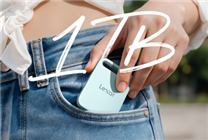The Rising Privacy Concerns Over Smart Glasses Among Generation Z
Summary:
- Increased Anxiety: Young people, especially Generation Z, express growing concerns about privacy violations linked to smart glasses equipped with cameras.
- Public Backlash: Instances of unauthorized recording have sparked significant debate online, with many advocating for stronger regulations.
- Cultural Shift: A generational divide exists in attitudes toward privacy and digital exposure, with Gen Z prioritizing personal privacy over tech convenience.
As smart glasses with built-in cameras become increasingly prevalent in public settings, privacy anxieties are surging among younger demographics. Reports indicate that Generation Z, in particular, is expressing significant discontent toward devices like Meta’s Ray-Bans, fearing that these technologies seriously threaten personal privacy.
While technology companies market these glasses as convenient, hands-free devices boasting an array of advanced functionalities, growing trepidation exists regarding unauthorized photography and the management of personal data. Public dialogue is intensifying around the ethical implications of such devices, raising questions about consent and the potential for misuse.
One highlight of this debate occurred earlier this month when a TikTok user shared their surprise upon seeing a beautician wearing camera-equipped glasses during a visit to a hair removal center in Manhattan. Although the beautician assured users that the glasses were not actively recording, the situation nevertheless sparked outrage. The company subsequently announced that employees would deactivate their glasses when interacting with clients, yet it underscored the crucial question of when and if individuals can be recorded without consent.
Social media platforms quickly transformed into forums for expressing disdain at what many perceive as intrusive privacy violations. A plethora of videos emerged, showcasing individuals who echo similar feelings of discomfort toward smart glasses. Despite some acknowledging the practicality of such technologies, the general sentiment leans toward a desire for their removal from everyday life.
Currently, companies like Google and Meta, along with various startups, are attempting to reintroduce smart glasses into mainstream culture. These devices often feature cameras, microphones, and AI capabilities, attracting the interest of content creators who seek to capture live events, from street interviews to restaurant scenes. However, the latest backlash is predominantly linked to Generation Z, whose acute awareness of digital exposure risks is reshaping discussions around consent and privacy.
Meta spokesperson Maren Thomas highlighted that Ray-Ban glasses feature an indicator light signaling recording status and possess a sensor to detect obstructions. Nonetheless, skeptics, including young New Yorker Opal Nelson, raise concerns about the reliability of such safety measures. Nelson pointed out that many individuals could circumvent these safeguards, heightening the risk of unauthorized recordings, especially for those in customer-facing roles.
Research reveals a distinct generational gap regarding attitudes toward digital privacy. Alice Marwick, the director of the nonprofit organization Data & Society, observed that millennials often share personal details freely on social media platforms, while Generation Z exhibits more caution. This new cohort meticulously weighs the potential repercussions of inadvertently sharing personal information or facing harassment online.
As digital platforms increasingly play critical roles in job searches and college applications, younger individuals are becoming acutely aware of the long-term implications of their online presence. This heightened awareness leads them to establish strict boundaries concerning content sharing, both with family and friends. The introduction of wearable devices complicates these boundaries further, introducing additional unpredictability into their already complex digital lives.
In conclusion, as smart glasses become more commonplace, the conversation surrounding their impact on personal privacy can only be expected to grow. Millennials and Gen Z may learn to coexist with technology, but the dialogue will likely continue to evolve as the balance between convenience and privacy remains a contentious issue.
Addressing this tension will require ongoing public discourse and perhaps regulatory measures to ensure that the personal freedoms of individuals are preserved as society navigates the technological frontier.









